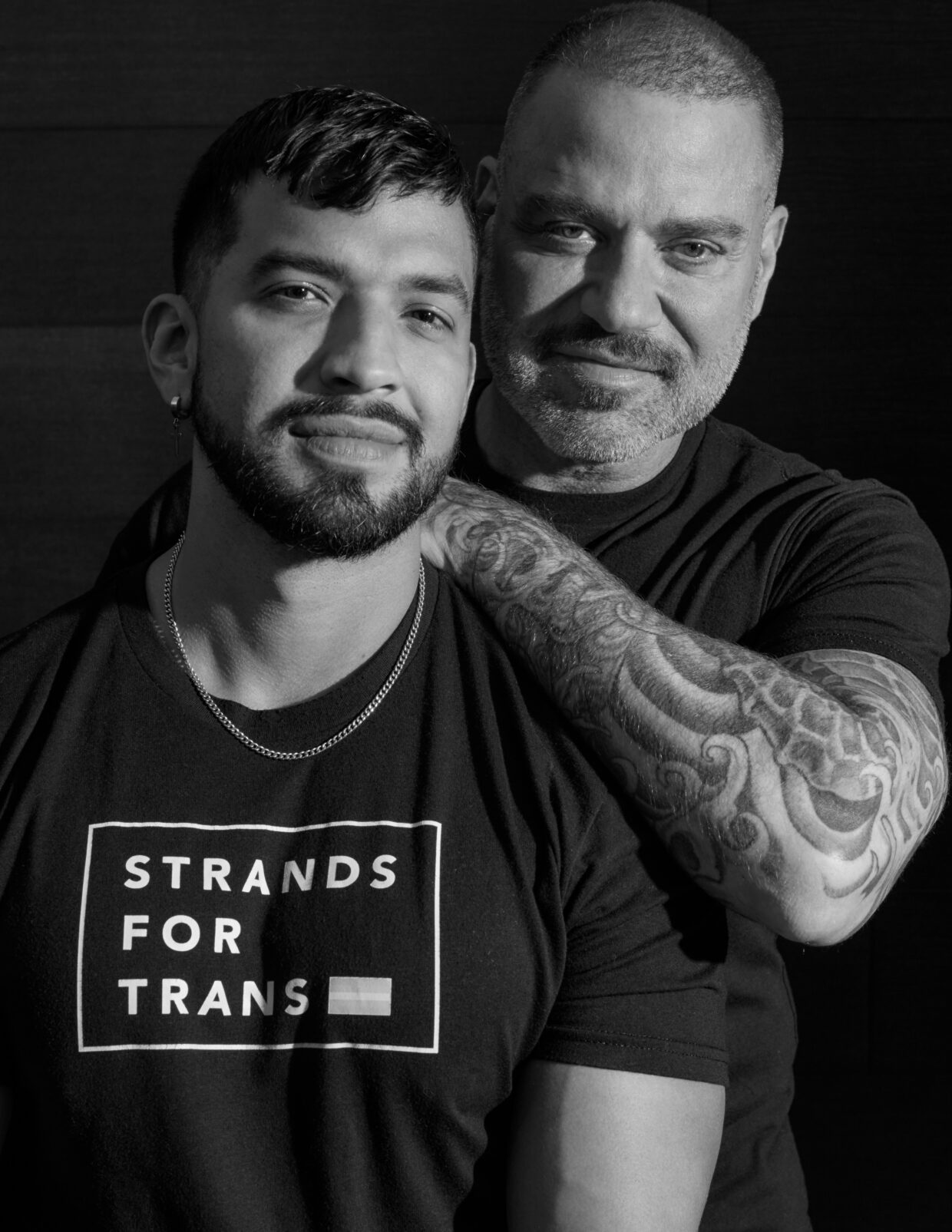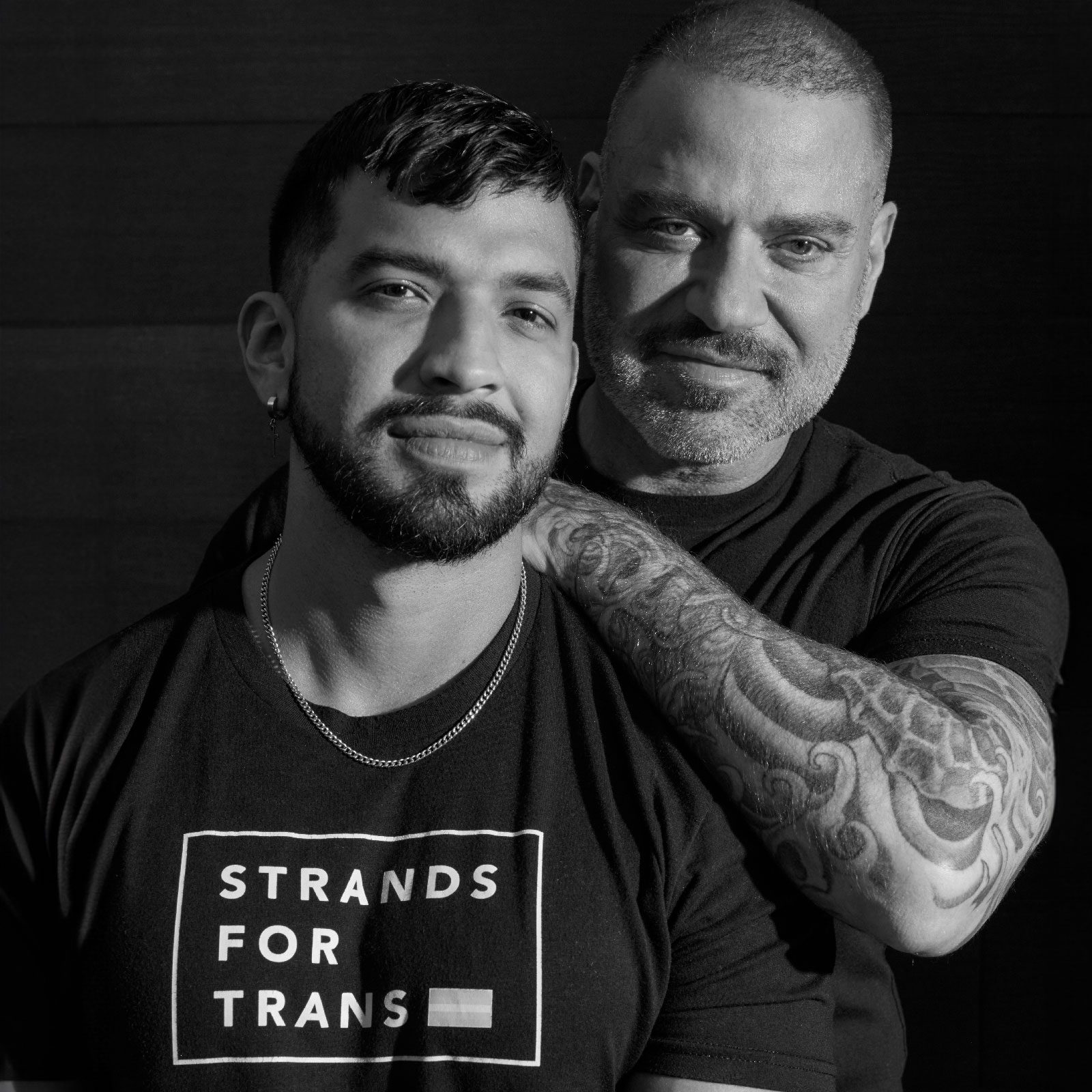For many individuals, salons and barbershops are a safe haven for self-care. But for members of the transgender community, these establishments can often be a source of extreme discomfort and even trauma. As hair salons and barbershops have generally been very gendered spaces—salons for women and barbershops for men—trans people can feel unsure and uncomfortable about using them. Not to mention, there’s also the added concern about the potential discrimination that they could face during their salon or barbershop visit, which could come in the form of misgendering or even refusal of service.

Thankfully, Strands for Trans is working hard to address this important issue and ensure that salons as well as barbershops are a safe space for all. Since its launch in 2017, the nonprofit organization has spearheaded a now-global movement to end discrimination against trans people in salons and encourage the creation of a more welcoming, trans-friendly environment at these spaces. As part of their campaign, Strands for Trans co-founders Xavier Cruz and JP Gomez created the world’s first digital registry of trans-friendly salons and barbershops around the world. Currently made up of more than 7,500 businesses—spanning all 50 states and several countries including the UK, Finland, and Australia—this global network has not only served as an invaluable resource for connecting the trans community with safe spaces to receive hair services without discrimination, but has also provided salon and barbershops with an opportunity to show their solidarity for the cause. Along with being added to the organization’s registry, every business that registers with Strands for Trans receives a pink, white, and blue barber pole sticker (that’s inspired by the trans flag) to display in their window as well as access to educational resources, like the Strands for Trans Guide, to help them create gender-affirming environments in their salon or barbershop.
To learn more about the incredible work that Strands for Trans is doing in the salon industry and beyond, The Tease spoke with Cruz and Gomez about the evolution of their vision for the organization, the role education plays in addressing the lack of trans-friendly salons and barbershops, and their advice for businesses seeking to create safe and affirming spaces. Keep reading for more.
The Tease: What sparked the creation of Strands for Trans?
Xavier Cruz: It all began after watching a news segment about a trans man suing a barbershop in Long Beach, California. The incident involved the barber refusing to cut the trans man’s hair, identifying him as a woman. This news segment both angered and inspired both of us. We decided to take action and create a campaign that promotes inclusivity and acceptance for transgender individuals. The goal is to challenge traditional beauty standards and ensure that everyone feels welcome and respected in all spaces, including barbershops and hair salons. My husband, JP Gomez, is a creative director at the ad agency, Terri & Sandy, and I am a hairstylist and business owner of Barba Grooming Boutique in NYC. The idea was brought to Terri & Sandy and a team was formed. They created the name, Strands for Trans. The campaign aims to educate barbers and hairstylists about the importance of providing equal services to all customers, regardless of their gender identity.
What was the original vision for Strands for Trans as far as the impact that it would have on the salon industry, and how has the company’s mission evolved over the last few years?
Cruz: Our initial vision aimed to raise awareness about the challenges faced by trans and non-binary individuals in finding affirming spaces. Recognizing the immense growth of our network over the years, we understood the need for a collaborative effort. Thus, we established a diverse steering committee consisting of individuals from various backgrounds and perspectives.
JP Gomez: With their invaluable contributions, we transformed our mission into a nonprofit organization dedicated to reaching new heights. Our focus expanded to include initiatives such as education, content creation, programs, and resources for the community. Recently, we proudly launched the Strands for Trans Guide, designed to assist business owners in creating more affirming environments.
To further our impact, we are currently working on developing structured in-person classes and events throughout the year. These endeavors hold particular significance for smaller towns that often lack access to such vital resources. Together, with the support of our dedicated team and partners, we are determined to bring our vision to life and foster inclusivity across the nation. It’s very exciting to work with passionate individuals. We believe our mission will keep growing and evolving as we listen to community needs.
Can you both speak on the ways that Strands for Trans is helping hair businesses to better support the trans community?
Cruz: As we mentioned, the S4T Guide is our first way to help businesses become more affirming. We took into consideration many different perspectives. We hosted national focus groups through our network, trans clients, and allies. We learned a lot. It helped us shape the guide made by the people for the people. Our next step is in-person classes and events to bring people together in small towns.
How essential is education when it comes to closing the gap in the lack of trans-inclusive barbershops and salons in the industry?
Gomez: A lot of businesses were asking for guidance. They weren’t sure what being affirming really meant. A lot of businesses weren’t aware that having men’s vs women’s pricing is an old way of thinking that could make people feel uncomfortable. It’s a system that’s so engraved into our minds it’s hard to think in another way. As soon as people make the effort to educate themselves and truly understand how we operate, businesses could either hurt or embrace the community in a big way.
What impact has the surge of anti-LGBTQ+ legislation over the last few years had on Strands for Trans, particularly when it comes to business wanting to join the company’s network?
Cruz: The impact has been tremendous, with an increasing number of barbershops and salons joining the network in solidarity. Over the past year alone, hundreds of businesses have embraced the cause, resulting in a remarkable network of over 7,500 trans-affirming salons and barbershops worldwide.
We have seen notable figures such as Billy Porter and Marc Jacobs get involved with Strands for Trans and its various initiatives. What has their support meant for the movement?
Gomez: They both have brought a bright spotlight to our initiative when the community needs it the most. Billy and Marc have amplified our messages to publications like Allure, Forbes, CBS News, and many others. We’ve been able to reach business owners to join our network and trans individuals across the world to search for their nearest affirming location. We’re forever grateful for their support and kindness.
Hair is heavily tied to gender constructs and salons as well as barbershops often reinforce binaries that can feel exclusionary. In your opinion, what will it take for the hair industry to embrace genderless salons and barbershops?
Gomez: We are excited to share that we have a groundbreaking idea in the works that revolves around education. While we can’t reveal all the details just yet, we firmly believe that education plays a pivotal role in our journey as hairstylists and barbers. It forms the foundation upon which we build our skills and expertise, shaping us into the professionals we aspire to be.
What advice would you both give to salon and barbershop owners who want to create a safe, welcoming, and trans-friendly environment at their business, but don’t know where to start?
Gomez: 1) Make your menu gender neutral.
2) Use your pronouns. Introduce yourself with your pronouns, display your pronouns in your social profiles or by your hair station.
3) Avoid using gender language like “feminine” or “masculine.” Instead use gender neutral language like “blunt/soft”, “round/square”, etc.
4) Take time with hair consultations.
5) Give haircuts to all.
Looking ahead to the future, how are you both hoping to expand the Strands for Trans movement even further?
Gomez: We are in the process of organizing a powerful national campaign aimed at addressing the challenges faced by individuals residing in states that have banned affirming care and restricted personal expression, including the prohibition of drag performances. As part of this initiative, we plan to visit barbershops and salons in these states to educate them about the importance of becoming affirming safe spaces for the transgender community. By fostering understanding and promoting inclusivity, we aim to create an environment where everyone feels welcome and supported.
To learn more about Strands for Trans and join their movement, be sure to visit strandsfortrans.org/ or follow @strandsfortrans on Instagram.


